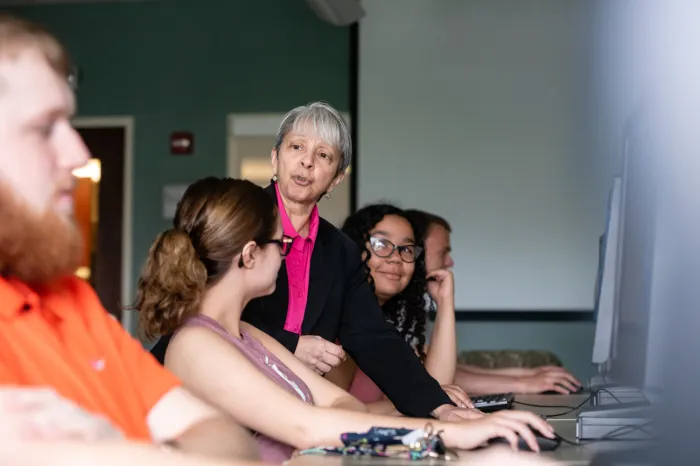
Marietta College’s McCoy Professor Grace Johnson continues publishing articles that are relevant to management, accounting, and learning in general. In recent months, Johnson had two articles published in academic journals.
Johnson’s article, “Lifelong Learning: An Essential Attitude for Career and Life Success,” was published in Vol. 6 (November 2023) of the ISACA Journal (the journal of the Information Systems Audit and Control Association). Her article advances a case for the significance and value of committing yourself to a philosophy of lifelong learning rather than adopting a lifestyle of skilling.
“Lifelong Learning: An Essential Attitude for Career and Life Success” explores how perspectives on lifelong learning are formed in childhood, given greater shape via formal and informal education, and nurtured throughout middle age and into retirement years,” said Johnson, who joined Marietta College in 1989. “It offers guidance on how to tap into a culture of lifelong learning and suggests ways to give back to younger generations of people by sharing with them your passion for learning.”
Johnson was contacted by a journal editor and invited to contribute an article to an issue whose theme is “Future Skilling.”
“As a faculty member at a liberal arts institution, I believe in my heart and mind that embracing a lifelong learning attitude is much more important than acquiring a series of job skills that will change over time,” she said. “And thus, I decided to prepare an article that drives home the power of possessing a passion for learning in the two worlds most of us occupy: the world of humanity and the world of work.”
Johnson’s second article, “Surfing for SIRF: How Financial Professionals Stem the Tide,” appears in the Journal of Government Financial Management, Winter 2024 issue.
Based on research she undertook on the topic of stolen identity refund fraud, her article examines why social engineers can successfully manipulate individuals into providing personally identifiable information. She identifies the human weaknesses that can be manipulated to coerce targets and co-conspirators to cooperate with the fraudster. The paper concludes with a set of recommendations for finance and accounting professionals to strengthen their environments against social engineering.